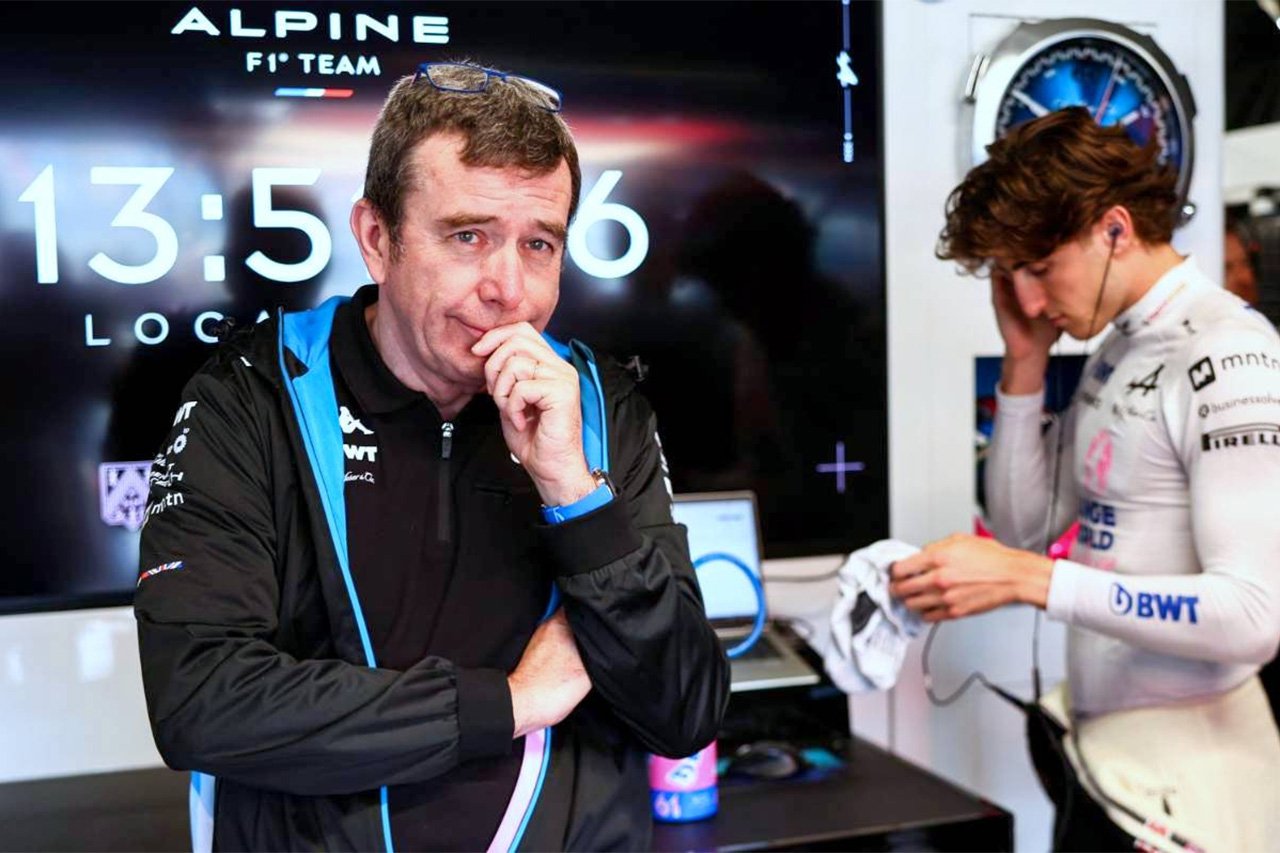#Renault #warns #Chinese #cars #wrote #Letter #Europe
“The automotive industry, a pillar of the European economy, is threatened by… influx of Chinese electric cars” – writes Luca de Meo, CEO of the Renault Group, in an open letter. He reminds that this sector employs 13 million people in Europe, i.e. almost every 10th of all production workers.
We see growing signs of weakness that could become a source of serious concern if nothing is done, Luca de Meo stressed.
Because, as the head of Renault writes, the center of gravity of the global automotive market is shifting towards Asia. 51.6% is sold there. new passenger cars, when Europe’s share is 19.5%. “China is rapidly entering the all-electric vehicle segment (…)In 2023, approximately 35 percent electric vehicles exported worldwide came from China” – reminds Luca de Meo. He points out that even Tesla delivers cars from the factory in Shanghai to the EU market.
The rest of the article is below the video
See also: Are Chinese cars a threat to our economy? “The question is how Europe will defend itself”
Europe overslept? “Production in Europe is more expensive”
“The value chain of vehicle production has not changed fundamentally over a period of 140 years. It took four to five years to develop a model, and seven to eight years to produce and sell it,” says the CEO of Groupe Renault. Today, however, automotive companies produce more than just cars. Luca de Meo highlights four new value chains:
- electric vehicles,
- software,
- mobility (financial services and charging),
- circular economy.
In his letter, he also points to the six biggest challenges, which – importantly – occur simultaneously. These are: decarbonization, digital revolution, legal regulations, technological variability, price variability, employee training.
“In an open economy competitiveness is measured by the relative advantage of individual market participants. One thing is certain: production in Europe is more expensive. “A ‘made in China’ C-segment car has a cost advantage of 6,000 to 7,000 euros (approximately 25% of the total price) compared to an equivalent European model,” the open letter reads.
Luca de Meo points to three different strategies in the global battle for the electric car market:
- China has embarked on an ambitious and proactive industrial strategy,
- The United States focuses on incentives
- Europe is creating regulations at a breakneck pace.
China is at the forefront of the global race. Europe overslept?
In 2012, the Communist Party of China gave priority to the production of electric cars. The Chinese observed and learned how they were produced in the West and used this knowledge to encourage recognized brands to transfer technology. Since then, they have made enormous progress in both design and technology. The government in Beijing has introduced a number of solutions to encourage improved efficiency and sales growth. Renault’s president also draws attention to lower energy and labor costs. They also have rich deposits of raw materials necessary in the supply chain for electric cars.
In the USA, reinforced by the Inflation Reduction Act (IRA), it was decided to subsidize the purchase of electric cars manufactured in the country and using local resources. De Meo also draws attention to the lower costs of production and construction of the factories themselves.
Meanwhile, Europe is highly bureaucratic. “Europe is currently developing a whole range of new standards and regulations,” he emphasizes. He adds that although the aim of numerous EU regulations is to make the European Union a leader in environmental protection, “other economic regions are reluctant to follow in Europe’s footsteps.” He points out that producers are unable to keep up with them.
As a result, Europe faces a complex task. It should protect its market, but it is dependent on China for supplies of lithium, nickel and cobalt and on Taiwan for semiconductors. It is in Europe’s interest to learn from Chinese producers,
who are a generation ahead in terms of EV performance and costs (range, charging time, charging network, etc.), software and the speed of development of new models (1.5 to 2 years compared to 3 to 5 years). Relations with China will need to be properly managed. Cutting yourself off from them completely would be the worst possible response
-Luca de Meo – CEO of the Renault Group
An example of such regulation was: Euro 7 exhaust emission standards in progresswhich were to come into force several years ahead of schedule the so-called ban on combustion cars in the EU. The industry protested, citing the horrendous costs of adapting production to these standards, which will not be able to pay for themselves because in 2035, new cars with conventional drives will no longer be profitable to sell.
EU goal: zero emissions. “End with standards, deadlines and penalties”
De Meo calls for defining a European industrial strategy and creating appropriate conditions “for the emergence of new European companies like Airbus.” It also calls for an end to the current system based on the constant introduction of new standards, setting deadlines and penalties. “It is necessary to review the list of standards planned for the next six years,” he states.
He also points out that not only the car itself as the final product should be zero-emission. “For example, we need to make sure that the energy we use is emission-free and available in sufficient quantities,” his open letter reads.
It also proposes to use the experience from the COVID-19 pandemic and, as was the case with vaccines, to create a community purchasing platform for critical raw materials.
“The car industry does not question the Green Deal or the need to decarbonize the mobility sector. Proof of this is the investment of EUR 252 billion in the energy transformation. However, we call for a second look at the conditions in which this global strategy is being implemented,” urges Luca de Meo.
Renault’s boss wants a small and cheap car “made in Europe”
In his open letter, he gives several project ideas “that will allow Europe to catch up.” One of them is promoting small, affordable European cars. It is no secret that EU automotive brands have been withdrawing from the A segment, i.e. city cars, for several years. The market today is dominated by popular SUVs and crossovers.
“If all parking spaces in Paris were adapted to small city cars, the space saved would be equivalent to 55 football stadiums in the city,” he wrote. Paris is a crowded metropolis whose inhabitants voted in favor of it increase in parking fees for visiting SUVs.
The head of the Renault Group calculates that “compact cars are 20 to 30 percent cheaper, they could generate additional growth in Europe (EUR 500 million of GDP per year).” Another idea is a “European Marshall Plan to accelerate fleet replacement”, which would significantly reduce CO2 emissions. This would be the equivalent of the National Recovery Plans after the pandemic, which would introduce “incentives for the purchase of new or used electric vehicles” at national levels.
“The prosperity of our continent is at stake,” reads the last sentence of his 15-page letter. Luca de Meo published it just over two months before the European Parliament elections. Their results will determine who will sit on the benches of the European Parliament, and soon afterwards the new European Commission will take office for the next five years.
“On the eve of the debates that will fuel the election campaign, I want to speak out not to play politics, but to help choose the right policy,” emphasizes Luca de Meo.
Rate the quality of our article:
Your feedback helps us create better content.










